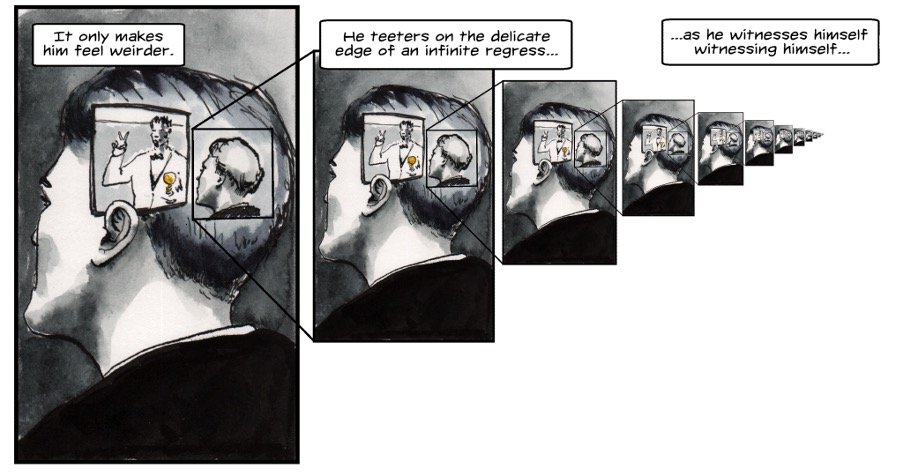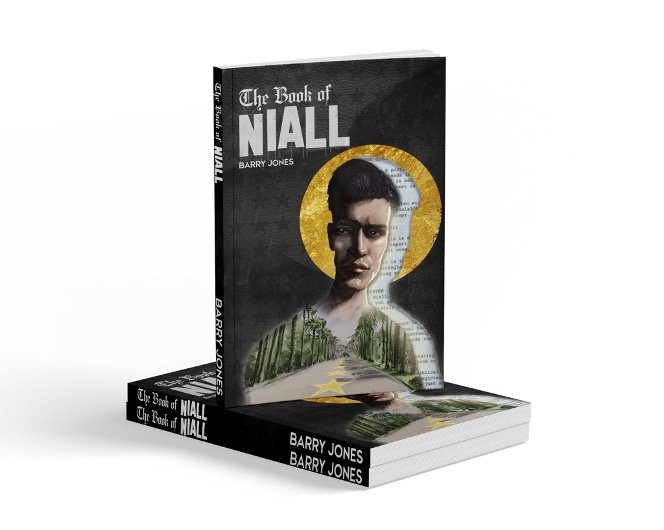Barry's Story: The Book Of Niall
What do you see in this picture? Two faces looking at one other? Or a candlestick?
It can sometimes feel like we’re living in a world where everyone sees the two faces, and trying to explain the candlestick to others, when you seem to be the only one experiencing its existence, is both difficult and frustrating.
I've worked as a full-time professional magician for two decades - my job being to make people doubt what they see. Yet I could never shake the virtually-indescribable feeling that the whole world was, in turn, playing a trick on me… a trick that I was beginning to see right through!
I know that for many, this feeling of derealisation can be overwhelming and frightening, and it was, at times, also confusing for me. In my search to find "the truth", I became fascinated by metaphysics, the philosophy of identity and, after my own dissociation enveloped me to the point at which words failed to hold any meaning, the philosophy of language.
Seeing that there was very little information available about DPDR at all, and certainly no works of fiction featuring characters living with the condition, I decided to confront the beast head-on and write my own story.
Ironically, DPDR left me with poor autobiographical memory and so tackling the creation of a character who feels that he, like myself, is living in an illusionary world caused me to stare hard into an infinite regress of introspection.
However, as I wrote each page and drew the accompanying illustrations, I managed to reclaim some control of my reality. Within these pages, I gained the power to shape words and their corresponding meanings as I (a pronoun that was at one point meaningless to me) journeyed with my fictional characters and gave one awareness of his fictitious state.
What resulted was a 240-page comic book telling the story of Hollywood actor, Niall Adams, who believes that everyone around him is also an actor, reciting lines from a pre-written script.
After sharing the book with some young people who live with DPDR, the reception was overwhelmingly positive, the feedback being that I'd managed to accurately portray a condition that, for sufferers, is incredibly difficult to describe.
"The Book of Niall" plays with our Western-biased concept of reality, and features actual magic tricks, creating a truly immersive reading experience as readers become, quite literally, involved with the story. I hope my book offers help to those living with DPDR, allowing them to feel like they are not alone, as well as offering more information to those who are struggling to understand this complex condition.
“The Book of Niall” is available on Amazon and a deluxe, limited edition that includes bonus items is available through Barry’s website.




